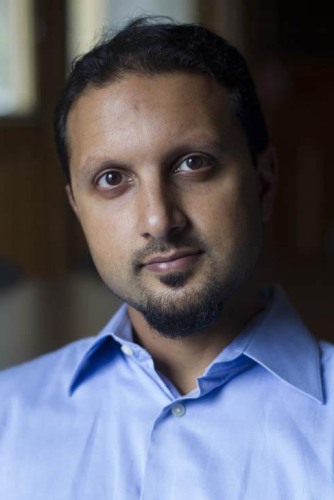
Faiz Ahmed
Biography
Faiz Ahmed is a historian of the Ottoman Empire and modern Middle East. Trained in law, social history, and the Arabic, Persian, and Turkish languages, Ahmed specializes in legal and constitutional history in the Ottoman lands, Afghanistan, and greater Persianate world. Inspiring his research and teaching is an abiding interest in how scholars, lawyers, and everyday people have debated, fought, and negotiated to build societies based on ideals of justice, dignity, and equality in their historical context and sociocultural milieu. From the Khyber Pass and Suez Canal to the Americas, his work has also been animated by the human interconnectivity often obscured by modern borders, regions, and area studies.
Ahmed’s first book Afghanistan Rising: Islamic Law and Statecraft between the Ottoman and British Empires presents a sociolegal history of how a diverse cast of Afghan, Turkish, Arab, and Indian Muslim jurists contributed to winning Afghanistan’s independence from Britain and promulgated the country’s first constitution. Based on archival work in six countries, it was awarded the American Historical Association’s John F. Richards Book Prize in 2018. Pivoting to the western hemisphere, his current book project Ottoman Americana: The Late Ottoman Empire and the Early United States (under contract with Princeton University Press) explores the social, economic, and legal underpinnings of Ottoman-U.S. ties from the eighteenth to twentieth centuries, as seen from Ottoman sources and perspectives.
Professor Ahmed has received multiple fellowships in support of his research, including as a Senior Fellow at Koç University of Istanbul; National Endowment for the Humanities Fellow at the American Research Institute in Turkey; Fulbright scholar in Cairo; and most recently, as a Visiting Fellow at Harvard Law School in 2023–24. He is also co-organizer with Brown University colleagues Michael Vorenberg, Rebecca Nedostup, Emily Owens, and Tiraana Bains of the Brown Legal History Workshop and Brown Legal Studies collaborative.
For a full academic profile and list of peer-reviewed publications, click here.
Note to *students and organizations outside Brown University: Out of prioritizing commitments to my current students and colleagues at Brown, I may not reply to all external queries in a prompt fashion. If you do not receive a response to your query within one week, please assume I cannot accept your invitation or request at this time. Thank you for your interest and understanding. Sincerely, Prof. Faiz Ahmed
*Professor Ahmed is not accepting new PhD advisees at this time.